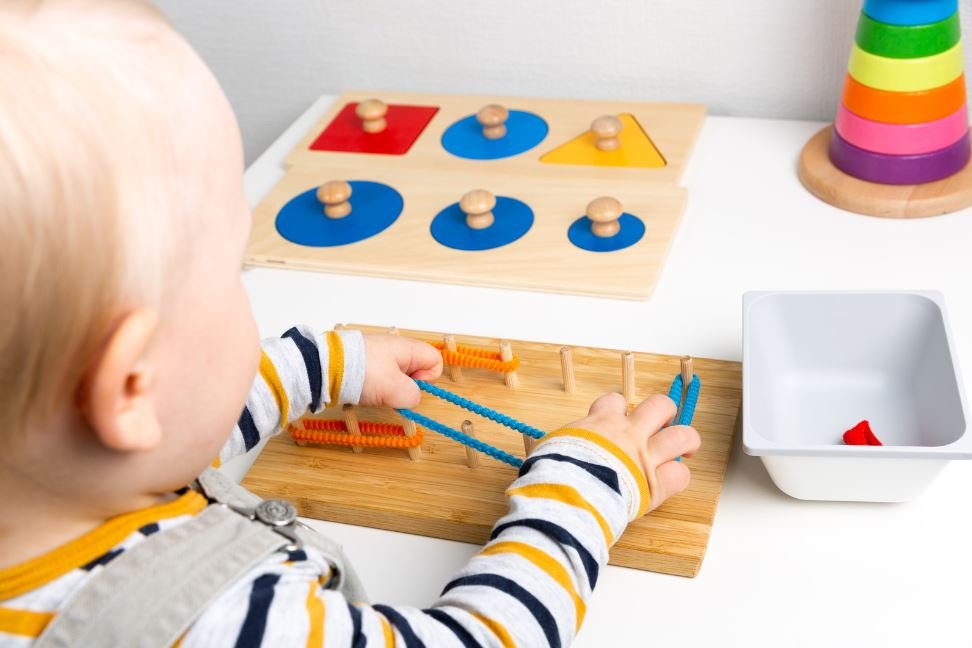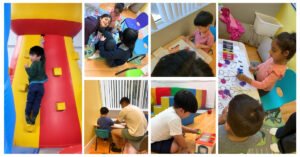As a parent, you naturally want to ensure your child is developing healthily and reaching key milestones appropriate for their age. Understanding these milestones can help you gauge your child’s progress and identify any areas where they might need additional support. In Vancouver, many parents are turning to pediatric occupational therapy to help their children achieve these critical developmental goals.
Typical Developmental Milestones for Children
Infants (0-12 Months)
During the first year of life, infants undergo rapid development. Key milestones include:
- Physical Development: Rolling over, sitting up without support, crawling, and standing.
- Fine Motor Skills: Reaching for and grasping objects, transferring objects between hands.
- Social and Emotional Development: Smiling, responding to familiar voices, showing preference for primary caregivers.
- Cognitive Development: Recognizing familiar faces, beginning to understand object permanence, responding to their name.
Toddlers (1-3 Years)
Toddlers continue to develop rapidly, both physically and cognitively. Key milestones include:
- Physical Development: Walking independently, running, climbing, kicking a ball.
- Fine Motor Skills: Stacking blocks, scribbling with crayons, turning pages in a book.
- Social and Emotional Development: Exhibiting more independence, engaging in parallel play, showing a range of emotions.
- Cognitive Development: Recognizing and naming common objects, following simple instructions, beginning to engage in pretend play.
Preschoolers (3-5 Years)
Preschoolers start to refine their skills and become more independent. Key milestones include:
- Physical Development: Hopping on one foot, catching a ball, dressing and undressing with minimal assistance.
- Fine Motor Skills: Using scissors, drawing shapes, manipulating small objects.
- Social and Emotional Development: Playing cooperatively with peers, expressing emotions verbally, showing empathy.
- Cognitive Development: Counting, understanding basic concepts of time, engaging in more complex pretend play.
School-Age Children (5-12 Years)
School-age children continue to build on their early development. Key milestones include:
- Physical Development: Refining gross motor skills like running and jumping, developing sports skills.
- Fine Motor Skills: Writing letters and numbers, completing puzzles, using tools like rulers.
- Social and Emotional Development: Developing friendships, understanding rules and consequences, managing emotions.
- Cognitive Development: Reading and writing, solving math problems, understanding abstract concepts.
Adolescents (12-18 Years)
Adolescence is marked by significant physical, emotional, and cognitive changes. Key milestones include:
- Physical Development: Achieving puberty, developing coordination and strength.
- Fine Motor Skills: Mastering complex tasks requiring precision, such as playing musical instruments.
- Social and Emotional Development: Developing a sense of identity, managing more complex social interactions.
- Cognitive Development: Thinking abstractly, setting goals, solving complex problems.
When to Seek Professional Help
If you notice your child is not meeting these typical milestones, it may be time to consider professional support. Here are some indicators that might suggest a need for pediatric occupational therapy:
Physical and Motor Skill Delays
- Infants: Not rolling over by six months, not sitting up by nine months.
- Toddlers: Not walking by 18 months, difficulty using hands for tasks like feeding or holding toys.
- Preschoolers: Difficulty with coordination, such as hopping, jumping, or manipulating small objects.
- School-Age Children: Trouble with handwriting, sports, or other activities requiring fine motor skills.
Social and Emotional Challenges
- Infants: Lack of eye contact, minimal response to caregivers.
- Toddlers: Difficulty interacting with peers, extreme separation anxiety.
- Preschoolers: Difficulty playing cooperatively, trouble managing emotions.
- School-Age Children: Trouble making or keeping friends, difficulty understanding social norms.
Cognitive and Communication Delays
- Infants: Not responding to sounds or their name, lack of babbling.
- Toddlers: Limited vocabulary, difficulty following simple instructions.
- Preschoolers: Trouble forming sentences, difficulty understanding basic concepts.
- School-Age Children: Struggling with reading, writing, or math, difficulty following complex instructions.
Costs and Access to Pediatric Occupational Therapy in Vancouver
The cost of pediatric occupational therapy can vary, but in Vancouver, you can expect to pay between $100 and $150 per session. Some extended health plans cover these costs, so it’s worth checking with your insurance provider. Additionally, some therapy centers offer sliding scale fees based on income.
Calling a Professional
If you are concerned about your child’s development, it’s crucial to seek professional advice. Occupational therapists are trained to assess and provide tailored interventions to help your child meet their milestones. Early intervention can make a significant difference in your child’s development and overall well-being.
Quick Statistics on Pediatric Occupational Therapy
- Prevalence: Approximately 1 in 6 children in Canada have a developmental disability that could benefit from occupational therapy.
- Success Rates: Studies show that early intervention can improve developmental outcomes by up to 30%.
- Local Access: Vancouver is home to numerous reputable therapy centers, providing accessible and high-quality care for children in need.
By understanding typical developmental milestones and recognizing when professional help might be needed, you can ensure your child receives the support they need to thrive. If you have concerns about your child’s development, don’t hesitate to reach out to a pediatric occupational therapist in Vancouver for a comprehensive assessment and personalized care.







